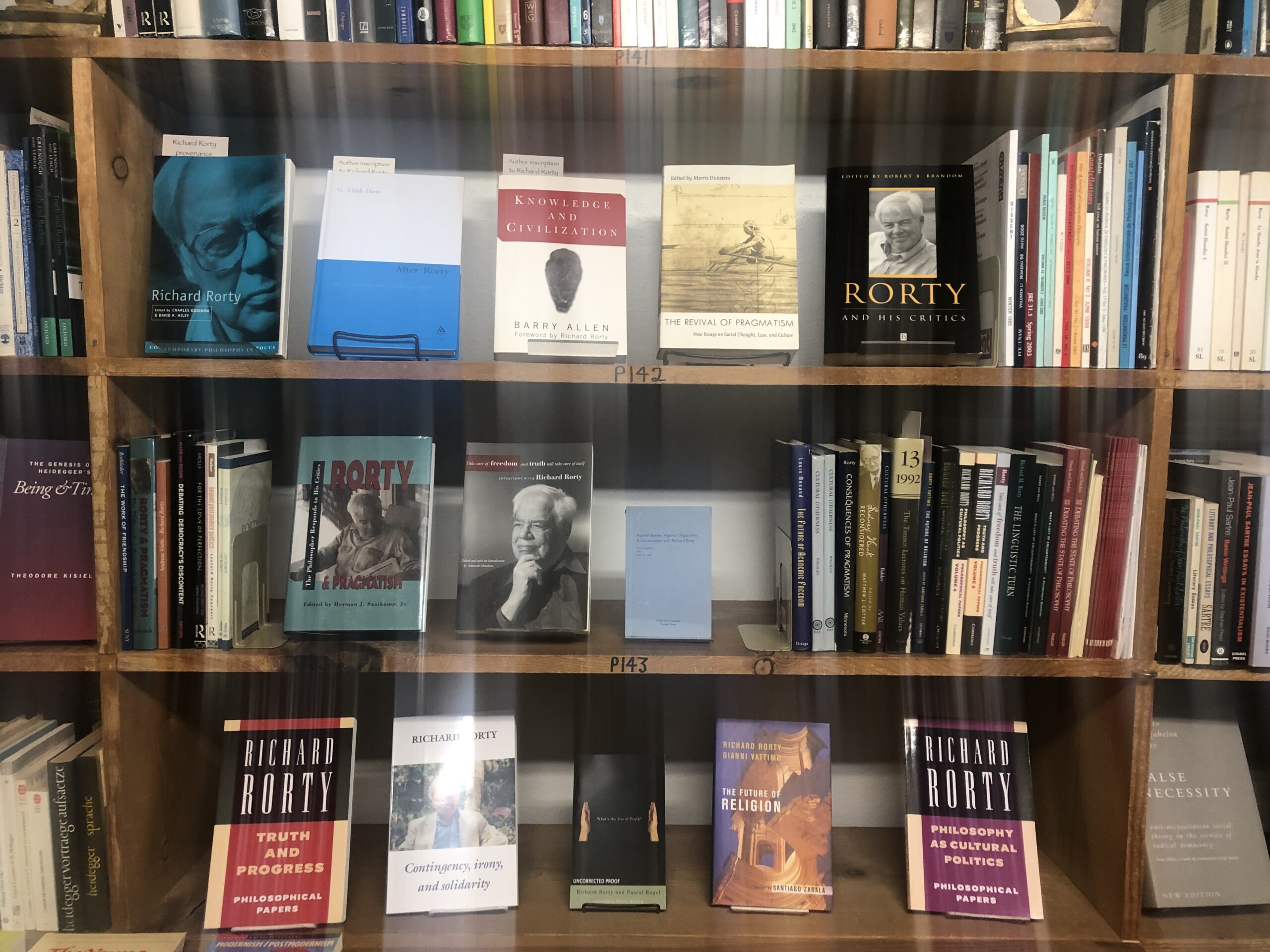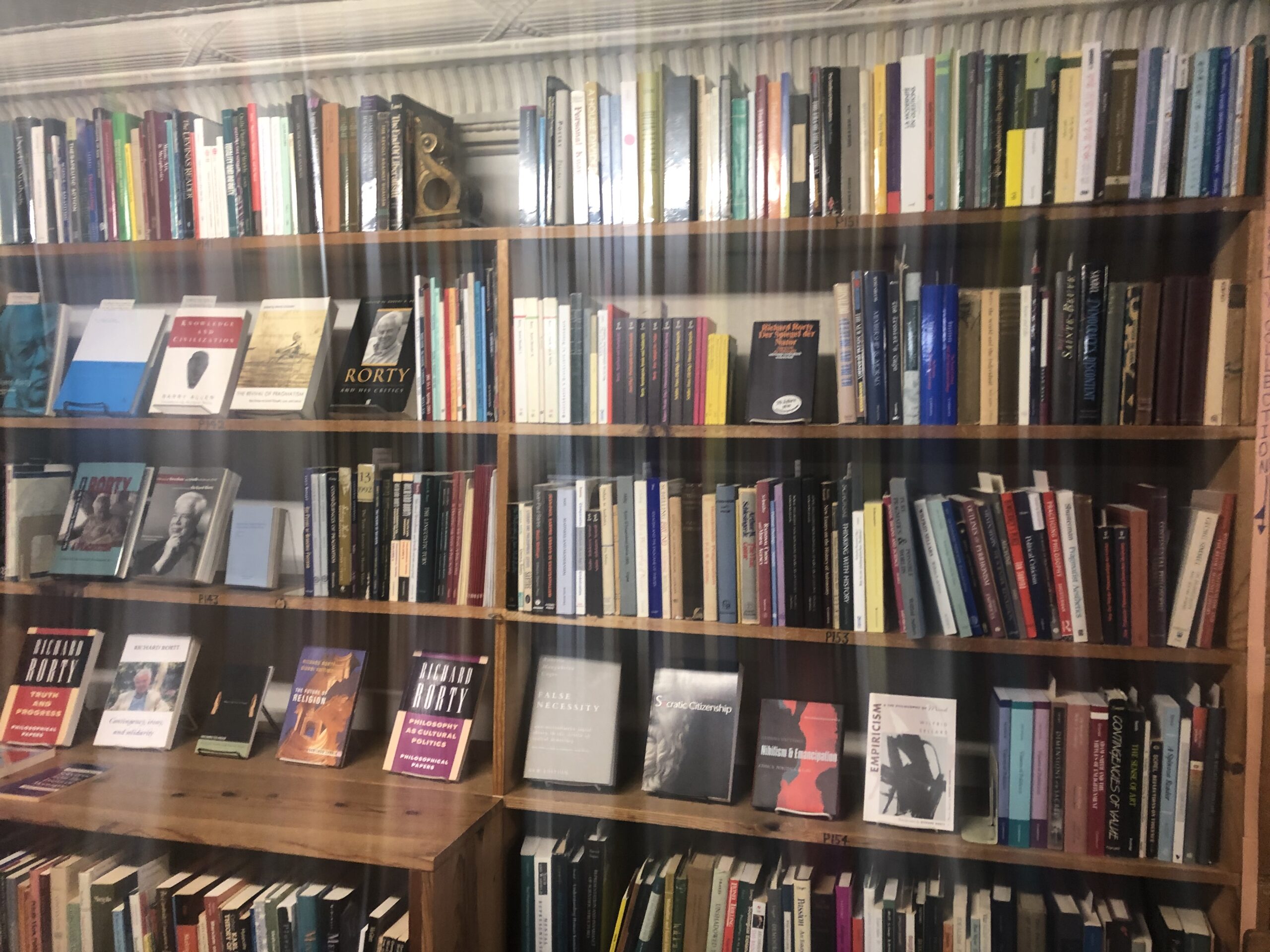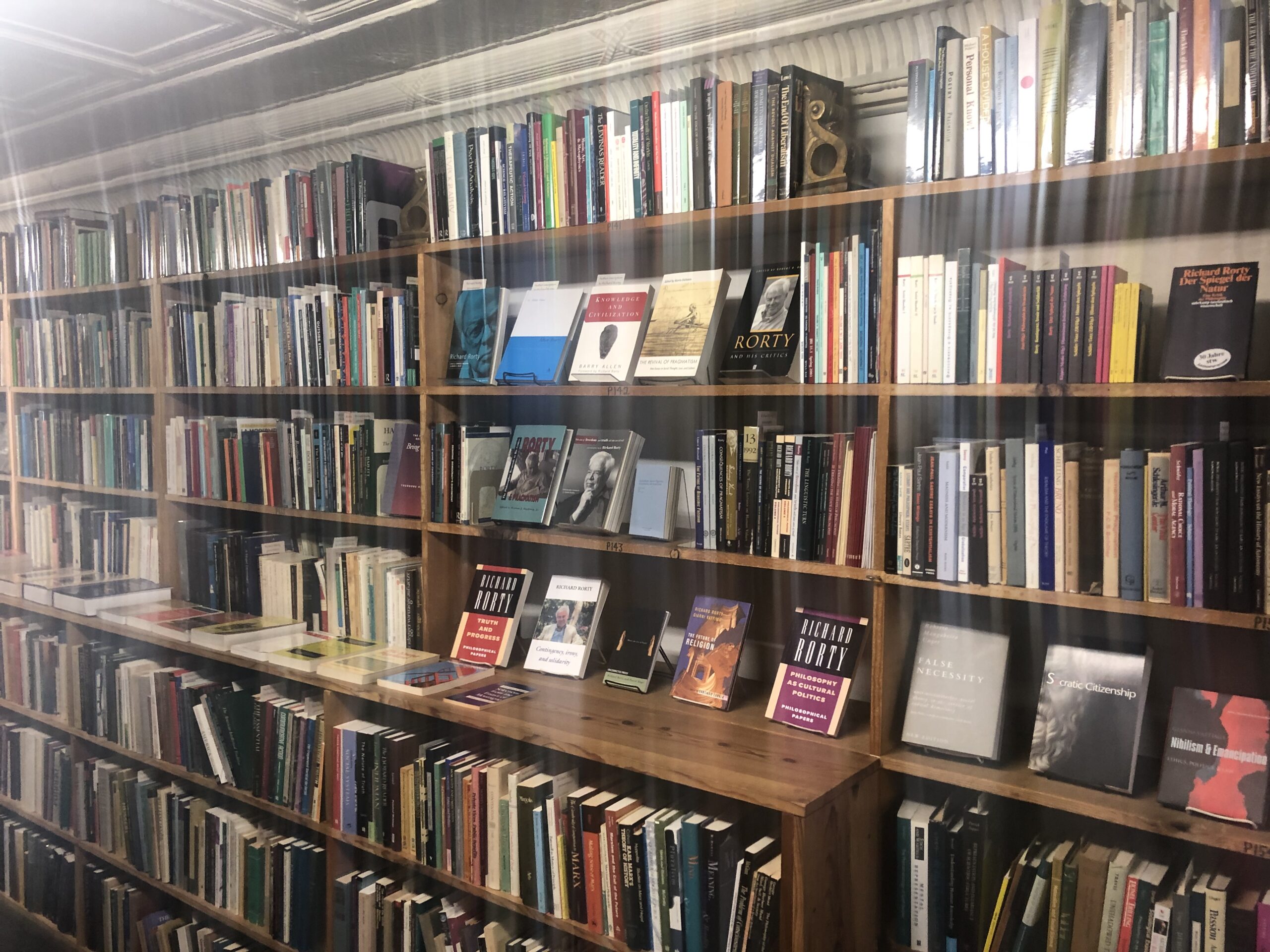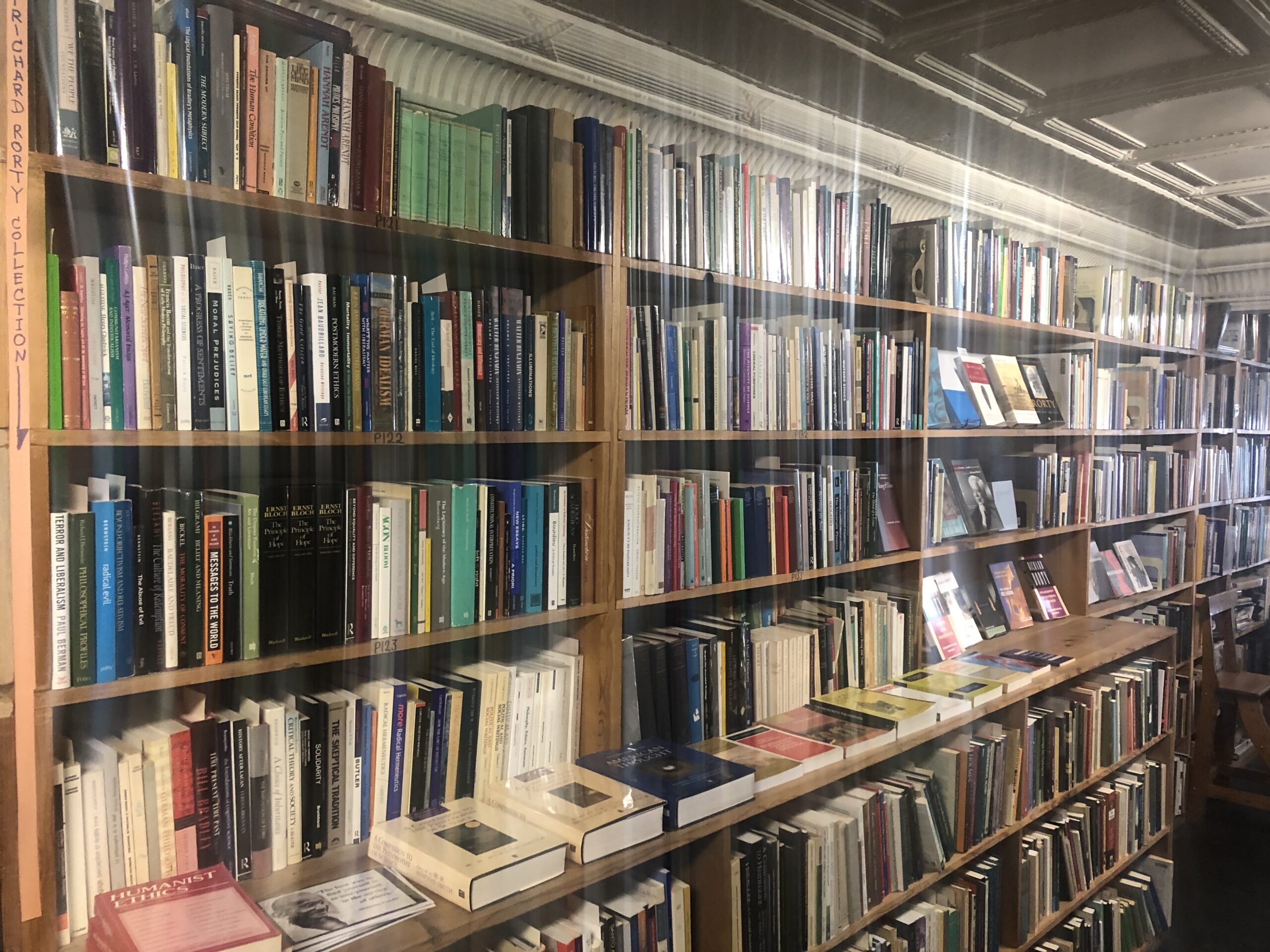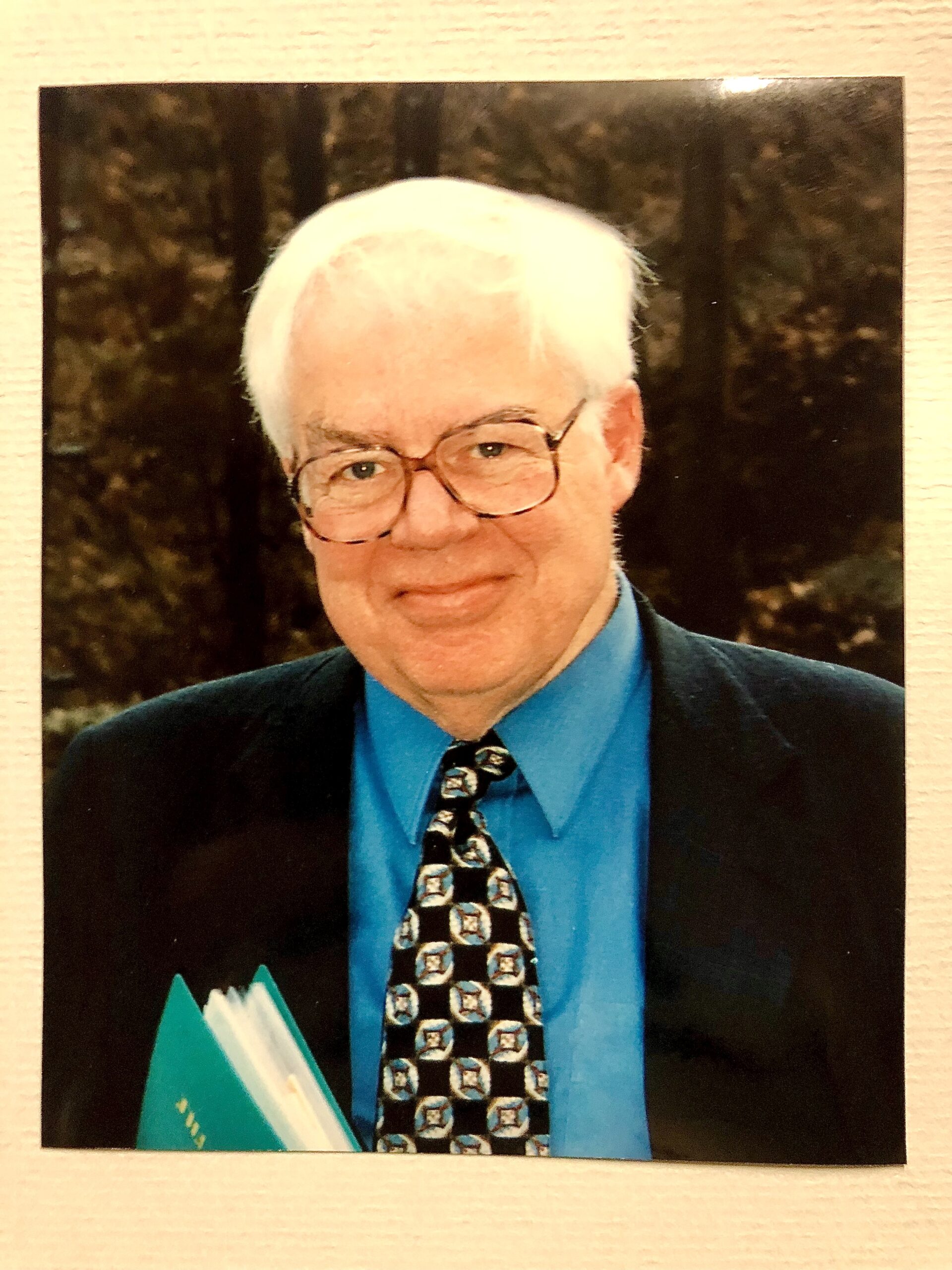
Initially known in the area of analytical philosophy, Richard Rorty eventually embraced a very sophisticated form of pragmatism which emphasized language and culture as guiding principles to philosophical thought. After teaching philosophy at Princeton University and the University of Virginia, Professor Rorty ended up coming to Stanford in the Comparative Literature Department, a position which he himself wryly viewed as ‘transitory professor of trendy studies.’ As the Stanford Encyclopedia of Philosophy states: “[ his ] legacy that is now taking shape tends … to highlight Rorty’s fundamental and enduring concern with the connection between philosophical thinking and the pursuit of human happiness… ”
The collection, which we have acquired through the generosity of his wife Mary Varney Rorty, consists of a wide variety of philosophers and topics, and some of the books bear Rorty’s surname in his own hand (see below) or dedicatory inscriptions from the authors to “Dick” (i.e., Richard Rorty). The signed copies include inscriptions from such eminent thinkers as Jacques Derrida, Bruno Latour, Slavoj Zizek, Cornelius Castoriadis, Jurgen Habermas, and many others.
We have also acquired unique examples of some books that were annotated by Rorty to the degree that one can see very clearly what his approach to particular philosophers or their ideas was. These titles include a one-page summary of Foucault’s Archaeology of Knowledge on the front endpaper, a heavily annotated copy of a book on modern French philosophy (sold), and four pages of handwritten notes to accompany Richard Wollheim’s On Art and the Mind.
Why not read an important work in philosophy and reflect at the same time that the copy you are holding was once owned by a very significant mind from the world of 20th Century philosophy?
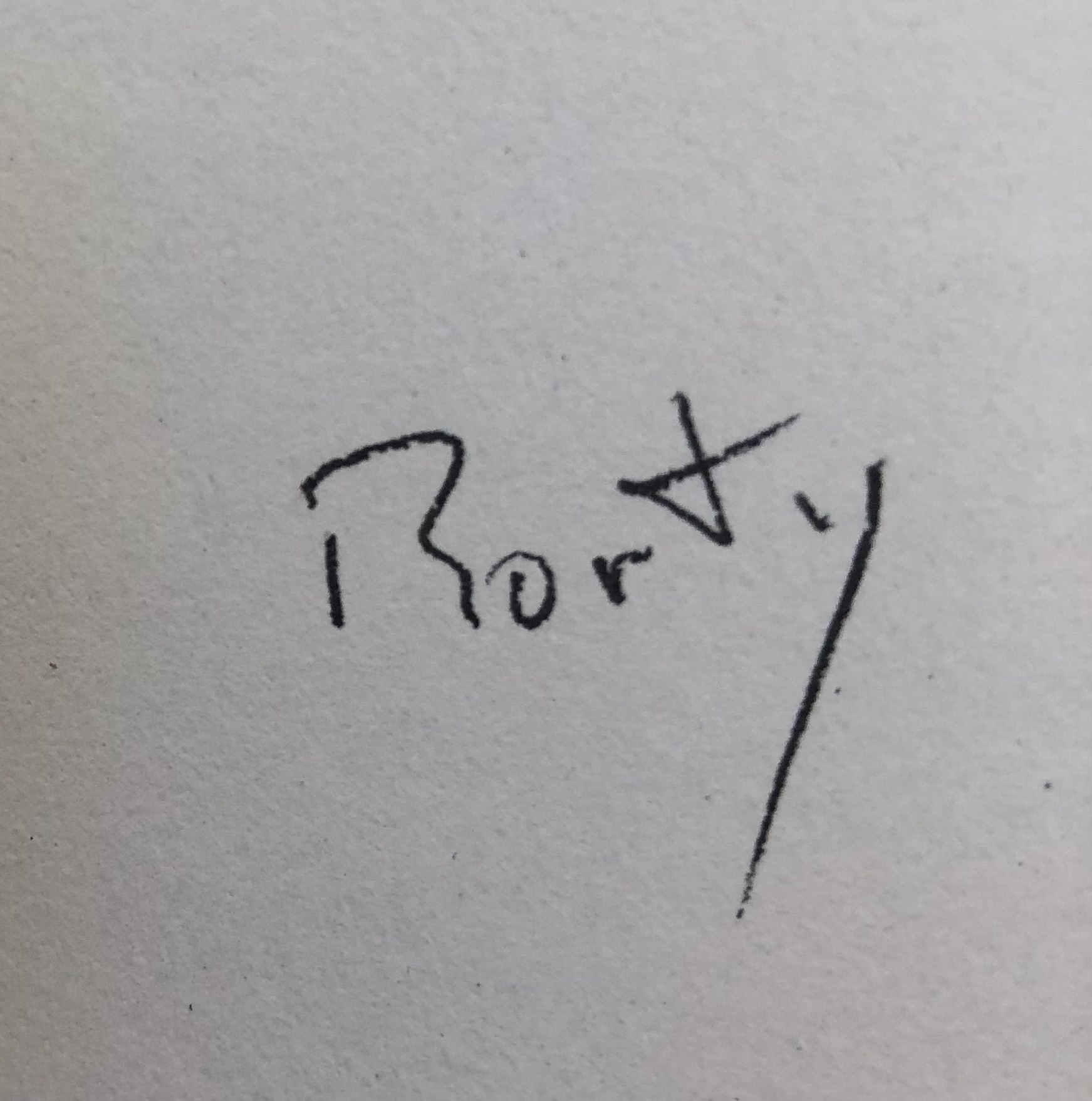
The images below are from the Rorty Collection we have in our shop. It consists of over 25 shelves of material from his former personal library.
